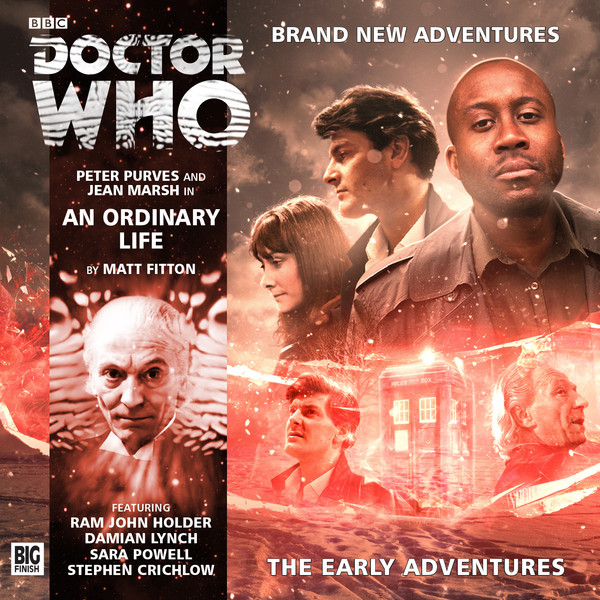As great historian L P Hartley once said: “The past is a foreign country, they do things differently there”.
As Jon Pertwee once said: “There is nothing more frightening than finding a Yeti on your loo in Tooting Bec!”.
Both quotes really capture how I like my Doctor Who, familiar, earthbound, yet uncanny and different. Classics for me from the old series are the historical epics of the Hartnell era, the earth invasion stories of Troughton and Pertwee – seeing Cybermen marching down the steps of St Paul’s really brings it home and makes it real far more than any space opera or alien world.
When Russell T Davies took over as show runner, and many fans bemoaned the lack of “alien worlds”, I celebrated the horror and oddness put back into the familiar, loved the juxtaposition of the mundane and the other worldly. For me nothing was more enthralling than seeing the Doctor in familiar setting, places I had been – Cardiff now became Doctor Who central, you could actually go and see the Torchwood Tower and many other locations, it made the show much more real, much more grounded, much more relevant and much more believable.
This months early adventures falls in to this category. It’s familiar yet odd, heartwarming yet horrifying, but has a great sense of hope. The story is set in the Hartnell era, slap bang in the middle of The Dalek’s Masterplan. The First Doctor, Steven Taylor & Sara Kingdom are dragged to earth in 1950’s London the TARDIS is malfunctioning and locks them out – the Doctor is in a bad bad way, barely able to walk and rambling; they are freezing cold in the depth of winter, and then, they are taken in by Joseph Roberts and his family and given shelter in his home.
Joseph and his family, niece Audrey Newman, her husband Michael Newman and baby daughter Josetta are immigrants, come over to the UK from Jamaica to seek out there fortune, they are outsiders, viewed with suspicion, even hatred by the indigenous population, yet kind and loving and willing to help our heroes in their hour of need.
The 1950’s really are alien, recent enough to be familiar, but completely alien in attitude. Prejudice is rife, and this is seen through the prism of Joseph Roberts, his dignity in the face of adversity and his belief in the goodness of humanity is a joy to listen to. Race and belonging is a strong theme for this story, and whereas Ace railed against the racism of the 1960’s, Steven & Sara’s reaction is somewhat different, its total bewilderment and lack of any concept of racism, they cannot comprehend why humans dislike other due to skin colour or origin – such things just do not exist in their time.
The story is very true to the Hartnell era – he isn’t in it for two episodes! He vanishes at the end of episode one stranding Steven and Sara in the 1950’s, leaving them to live an ordinary life, paying rent, working, cooking, fitting in. Steven befriends Michael and stands up for him when he is racially abused at work and he really gets some great lines and his common human decency really shines through. Being a Doctor Who story, there is an alien threat, but this really is secondary to the social study which is at the heart of the story. It is very Invasion of the Body Snatchers, duplicates infiltrate and take over, and doesn’t really get going until the end of episode two.
The story ends with a great punch the air speech from The Doctor (imitated very well by Peter Purves) in the style of his “one day, i shall come back” speech – this one concerns immigrants as pioneers building a better future for Britain – its really stirring and a great mission statement for the Doctor.
This really is my sort of story, great performances from the regulars and supporting cast, with a particular nod to Peter Purves as Steven and Ram John Holder as Joseph Roberts.
Matt Fitton has given us really well crafted snapshot of 1950’s Britain with a Doctor Who twist, the story may be called An Ordinary Life, but this is an extraordinary story – overall 9/10.

No comments:
Post a Comment